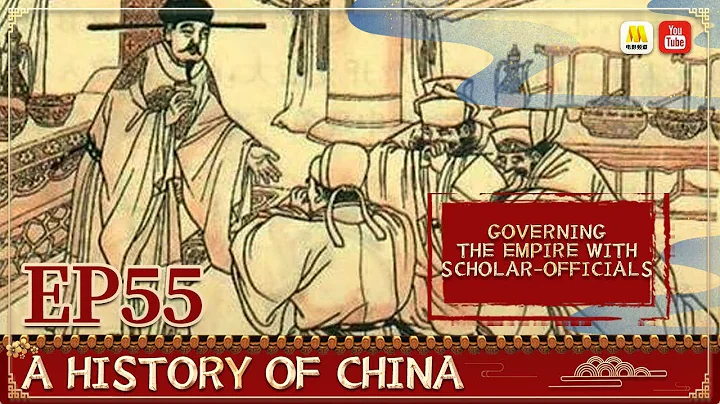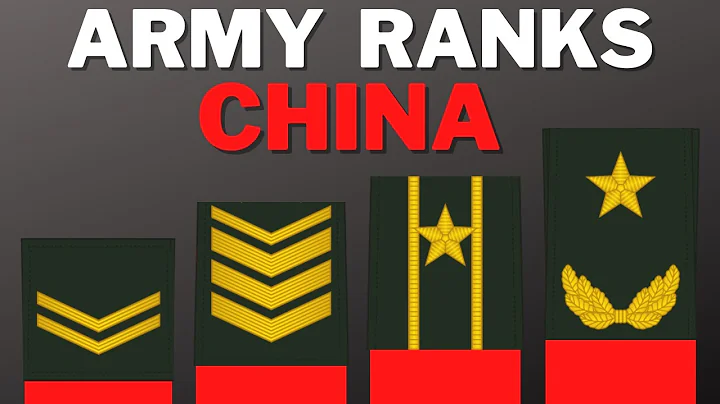Preface:
General Li Da ranked second among the 57 generals in the founding of the People's Republic of China, only after General Xiao Ke.
The reason why General Li Da's status is so prominent is not because of his commanding ability, but his staff ability. He served as Chief of Staff for a total of 40 years in his life, assisted 6 founding marshals, and gained their recognition. Liu Bocheng once said that he was a "good and competent chief of staff", Chen Yi praised him as "the chief of staff who sleeps with his phone in his arms", and Deng Xiaoping said that he was "the best chief of staff".
Li Da modestly said that he was just a "staff officer standing in the shadow of the leader."

General Li Da: From the Northwest Army to the Red Army
Li Da's original name was Li Desan. He was born in Mei County, Shaanxi Province in 1905. He once He studied at Xi'an Private Dongdao Middle School and Shaanxi Provincial Normal School. When he was 19 years old, he graduated and returned to his hometown and became a primary school teacher.
But Li Da's ambition was not there after all. Soon he joined the army and was admitted to the Second Officer School of the Northwest Army founded by Feng Yuxiang. After graduation, he served in the Second Group Army of the National Revolutionary Army and participated in the Central Plains War . After the war, he was incorporated into the 26th Route Army, and then he went with the army to Jiangxi to participate in the encirclement and suppression of the Central Soviet Area.
26 Most of the soldiers of the Route Army were from the north. After they arrived in the south, they were not accustomed to the climate and climate. malaria and red dysentery and other epidemic diseases were once prevalent. Facing the mobile and flexible Red Army, they suffered repeated defeats, and finally the morale of the army was in chaos.
As Sun Lianzhong, Gao Shuxun and others left the team one after another, Zhao Bosheng, chief of staff of the 26th Route Army and underground party member, Dong Zhentang, commander of the 73rd brigade, and Ji Zhentang, commander of the 74th brigade, agreed with and others that Chiang Kai-shek was passively resisting Japan and was still trying to eliminate them. The Red Army had the opportunity to weaken the non-lineage troops and kill two birds with one stone, sitting on the mountain and watching the tiger fight, so it decided to launch the Ningdu Uprising.

At that time, there were only 40,000 people in the Red Army. During the Ningdu Uprising, more than 17,000 officers and soldiers collectively turned their guns and joined the Red Army. This can be called a miracle.
This also shows the appropriateness of the Red Army’s propaganda policy and the appeal of the Communist Party’s ideals to the soldiers.
Subsequently, the 26th Route Army was reorganized into the Fifth Red Army Corps. Together with the First Red Army Corps and the third Red Army Corps, it was known as the "three main forces" of the First Red Army. Ji Zhentong is the commander-in-chief of the Fifth Red Army Corps, Dong Zhentang is the deputy commander-in-chief, Xiao Jinguang is the political commissar, and Zhao Bosheng is the chief of staff.
Although Li Da was only a small company commander in the Fifth Red Army Corps at this time, his talents were quickly reflected in the cruel war. Due to his ability in combat and his good judgment, it took only three years to He became the chief of staff of the Red Sixth Army. At that time, the commander of the Sixth Red Army was Xiao Ke and the political commissar was Wang Zhen.
In August 1934, the Sixth Red Army Corps was ordered by the Central Committee to launch a Western Expedition toward the Soviet Area in Western Hunan and Hubei. It actually undertook the important task of exploring the path for the Central Red Army's Long March. After three months of hard work, the Sixth Red Army successfully joined forces with the Third Red Army (that is, He Long's Second Red Army) in Huangmu Town, Guizhou on October 24.

After that, Li Da was transferred to the Second Red Army Corps as chief of staff, responsible for assisting He Long in developing a base in western Hunan.
In July 1936, the Second and Sixth Red Army Corps and the 32nd Red Army (adapted from the Red Ninth Army Corps, with Luo Binghui as the commander) were ordered to jointly form the Red Second Front Army. Li Da was the chief of staff of the Red Second Front Army. Soon after, the Second Red Front and the Red Fourth Front Army embarked on the road north to Shaanxi-Gansu-Ningxia.
After the Fourth Red Army moved north, the main force crossed the Yellow River and marched westward, carrying out the important tasks of occupying Ningxia and Gansu and opening up international channels. However, due to backward equipment, different combat objectives, and lack of mass base, they suffered in the Hexi Corridor To the fierce attack of Ma Jiajun .
In order to reinforce the Western Route Army, the central government quickly established the Western Aid Army. Liu Bocheng was the commander of the Western Route Army, Zhang Hao (Lin Yuying) was the political commissar, and Zuo Quan (later Li Da) was the chief of staff.
The Western Aid Army went all the way west. When they arrived at the areas of Zhenyuan, Pingliang, and Guyuan, they learned that the West Route Army had failed.
According to General Geng Biao's recollection, Liu Bocheng personally summoned cadres from the Western Army Corps and above to come to Kaifeng and read to them the report on the failure of the Western Route Army. Halfway through the reading, Liu Bocheng's voice choked up and he could not continue. There were nearly a hundred people in the audience. The officers cried a lot, and some even burst into tears. The guard outside the door didn't know what happened to make these battle-hardened leaders cry so sadly.

The Fifth Red Army in the West Route Army was the Fifth Red Army after the Ningdu Uprising. It was Li Da's old army. Its two commanders, Dong Zhentang and Sun Yuqing, both died in Hexi.
The Western Route Army had to garrison on the spot to find and accommodate the lost personnel of the Western Route Army.
After the outbreak of the Anti-Japanese War, the main force of the Army to Aid the West was reorganized into the 129th Division of the Eighth Route Army, and the leadership team basically inherited the configuration of the Army to Aid the West. Liu Bocheng was the division commander, Zhang Hao was the director of the Political Training Department (political commissar), and Ni Zhiliang was the chief of staff ( Before taking office), Li Da was the Chief of Staff (actually responsible for the work of Chief of Staff). In December 1938, Li Da was promoted to chief of staff of the 129th Division.
"Living Map" The relationship between Li Da and Marshal Liu Bocheng
Although Li Da has cooperated with 6 founding marshals in his life, the one he has cooperated with for the longest time is Marshal Liu Bocheng.
Li Da believed that Liu Bocheng's attainments in military command and military theory were unique among the entire army, so he always respected Liu Bocheng very much. Although he left Liu Bocheng after the founding of the People's Republic of China, he always used Liu Bocheng's teachings to his officers and soldiers in many speeches.
When training for shooting, he likes to quote Liu Shuai's quote: "Instead of having a hundred soldiers who can hit one target with one shot, it is better to have one soldier who can hit one target with one shot. A perfect shot means one against a hundred."
Talking about leadership Regarding the way of the army, Li Da said: "Liu Shuai once said that when leading an army, you must not wave your fan in summer and do not open your umbrella in rain. If the soldiers have not entered the tent, the general should not enter; if the soldiers have not eaten, the general should not eat. Those who have not experienced the life of a soldier "Generals are not good generals."

When he served as deputy chief of staff in 1972, he organized a group of senior generals to serve as soldiers in their companies. Major military region cadres served as company commanders, corps-level cadres served as platoon leaders, and division-level cadres could only serve as soldiers. Soldiers, they eat, live and train together with the soldiers. At that time, some cadres complained because they could not bear such hardship, and Li Da warned them with Liu Bocheng's words.
Liu Bocheng also admired Li Da's staff skills and once said that he was a "good and competent chief of staff."
According to General Tao Hanzhang's recollection, Li Da showed his outstanding staff skills very early on. In 1935, after the Second and Sixth Red Army Corps entered Guizhou, they planned to establish a base in Bijie, China. At that time, Ren Bishi asked Li Da for his suggestion. Li Da tried his best to dissuade him, saying that Bijie was by no means a place to establish a base. First of all, Bijie had a prominent strategic position and directly threatened Yunnan. Chiang Kai-shek and the local armed forces in Yunnan would not sit idly by. Secondly, Bijie had convenient transportation and Chiang Kai-shek mobilized It is very convenient to send soldiers and generals to carry out encirclement and suppression, and it is difficult for the Red Army to gain a foothold.
A few days later, as Li Da said, troops from Yunnan, Hunan, and Guizhou set off one after another, approaching Bijie. The Second and Sixth Army quickly withdrew westward. Ren Bishi sighed on the road: "Li Da is really prescient."

Li Da The general is known as the "living map of the army". He has a keen and amazing insight into the topography and geographical position. This is an important reason why he is admired by the military god Liu Bocheng.
In 1947, the Shanxi-Hebei-Luyu Field Army advanced into the Dabie Mountains . Li Da took the lead and led his troops to explore the way for the army, followed by Liu and Deng. One day, the vanguard troops had set up camp, but no news about Liu Deng was received for a long time. Even when people were sent to search for him, there was no trace.
Li Da thought for a moment, called a staff officer, and told him to climb over the mountain first, then cross the river, and go to a place called XX Village to pick up Liu and Deng. The staff followed the plan and found Liu Deng.
Afterwards, Liu Bocheng asked Li Da how he knew which Zhuangzi he was lost in. Li Da said that on the map, this Zhuangzi had the same name as another Zhuangzi, one in the east and the other in the west, so I guess it must be here. place. After hearing this, Liu Bocheng praised: "Li Da is a living map." Deng Xiaoping couldn't help but praise: "Your skills are really amazing."

Li Da had a natural acumen for directions. The most amazing story is that once he took a ride The plane was flying from Zhanjiang to Kunming. There was a thunderstorm on the way and the plane needed to make a detour. However, in order not to affect Li Da's rest, the captain asked the staff not to notify him. Li Da was still concentrating with his eyes closed at that time. He suddenly asked: "Why is the plane flying north?" The staff was amazed and reported the situation truthfully.
Everywhere he goes, Li Da must first search for and draw maps. During the Anti-Japanese War, he personally organized cartographers and reconnaissance troops to conduct field surveys in a wide area of North China, and finally drew the authoritative "Latest Detailed Map of North China", which won unanimous praise and recognition from officers and soldiers.
Li Da attaches great importance to map drawing and has very strict requirements, because he knows very well that a single location or marking error may cost the soldiers a heavy price.
Once, when a staff officer of the 129th Division Headquarters was making a battle report, he mistakenly wrote "Laiyuan" in the Taihang area instead of "Laiyuan" in the Shanxi-Chahar-Hebei area. Liu Bocheng discovered his oversight and drew it on the report. He drew a thick red line and returned the report to Li Da.

Li Da immediately called a meeting with the central staff and severely criticized this negligence. He said: "This mistake can be seen by people with one eye (referring to Liu Bocheng). We all have two eyes. Why can’t you see it?”
According to the memories of the staff around Li Da, General Li Da must sit in the front passenger seat every time he travels. This is a habit he developed when he was chief of staff during the war. Habit.
Even in peaceful times, Li Da must bring a map, compass and magnifying glass every time he goes out. Every time he sees a map, he must look at it carefully and study it for a while. Everywhere he goes, he will definitely ask about the local geography. For example, when he arrives in Yunnan, he will ask where is the Stilwell Highway? When he arrives in Guangdong, he will ask Chairman Mao what five ridges are the "five ridges" in the "five ridges with gentle waves"? When he arrives in Heilongjiang, he will ask why there are two Songhua River on the map.
Until he was in his 80s, General Li Da could still name more than 2,000 counties across the country word for word. It can be said that the qualities and habits developed during the war years have been deeply rooted in General Li Da's blood.
General Li Da's war years and his relationship with the six marshals
During the Anti-Japanese War, Li Da assisted Liu Bocheng and Xu Xiangqian in commanding the Battle of Shentouling, the Battle of Xiangtangpu, Southeast Shanxi Anti-Jiu Road Siege, and the Battle of Xiangchenggu , Ciwu Shelin Battle, Hundred Regiments Battle and other famous battles.
In October 1943, Li Da concurrently served as the commander of the Taihang Military Region. After the Shanxi-Hebei-Luyu Military Region was established in 1945, Li Da served as the chief of staff of the military region and commander of the Taihang Column.
The Shanxi-Hebei-Luyu Military Region immediately launched the Shangdang Campaign and Handan Campaign. During the Handan Campaign, Li Da once ventured through layers of fire lines to discuss the uprising with the commander of the new Eighth Army of the National Army. Gao Shuxun was the commander of the 27th Division of the 26th Army at that time, and he was also an acquaintance of Li Da. Gao Shuxun's uprising was of great significance in the War of Liberation, and Li Da contributed a lot to promoting Gao Shuxun's uprising.

html In June 346, the Shanxi-Hebei-Luyu Field Army was formally established, with Li Da as chief of staff. After that, he assisted Liu and Deng in commanding the Longhai Road, Dingtao, Juye, Northern Henan, Southwest Shandong, advance Dabie Mountain and other series of battles.
html In May 348, the Shanxi-Hebei-Luyu Field Army was renamed the Central Plains Field Army. Li Da continued to serve as chief of staff, assisting Liu Deng and Chen Yi in commanding the Huaihai, Crossing the River and other battles. Later, he followed the army into the southwest and served as deputy commander and political commissar of the Southwest Military Region. At that time, the commander of the Southwest Military Region was his old commander in the Second Front Army, Marshal He Long. This was their second cooperation.
Soon after the founding of the People's Republic of China, the War to Resist US Aggression and Aid Korea broke out. Li Da succeeded Jie Fang as the Chief of Staff of the Chinese People's Volunteer Army in 1953, and jointly commanded the battle with Peng Dehuai, Chen Geng, Hong Xuezhi and others.
After returning to China, he successively served as Deputy Minister of Defense, Deputy Minister of the PLA Training Directorate and Minister of Planning and Supervision, and Deputy Chief of General Staff of the PLA. During this period, he once again worked under the direct leadership of Marshal Ye Jianying.

In 1955, the Chinese People's Liberation Army began to implement the military rank system. Before the title was awarded, Li Da's wife Zhang Naiyi asked Li Da: "What rank can you give this time?" Li Da said: "Maybe it's a lieutenant general, or maybe a lieutenant general." Maybe he is a major general. I have done too little for the party and the people. "
But the fact that Li Da was rated as the founding general and ranked second fully proves the central government's recognition of his many years of work.
General Li Da had a humble attitude and never took credit for himself. Once his daughter saw her classmates in school comparing each other, saying that this classmate's father was a lieutenant general and that classmate's father was a major general. The daughter was curious and asked her father what kind of general he was. Li Da replied: "What's the use of your kid asking about these things? I am sesame paste, yellow paste."
Hard work, never forgetting the original intention
General Li Da's personal fame and fortune throughout his life, he has always maintained the character of a hard-working old Red Army. Oppose eating, drinking, extravagance and waste.
In 1950, Liu Bocheng left Erye and founded Nanjing Military Academy. The academy recruited a group of cadres and students in the southwest region. Before leaving, Li Da specially entertained them with Taihang Mountain "Qinzhou Yellow" millet dry rice. , He said to these subordinates: "I treat you to eat Taihang Mountain's Qinzhou Huang today. I hope that no matter where you go, whether in Nanjing or Beijing, you will not forget the difficult years we spent in the Taihang Mountains." , Don’t forget our fellow villagers in the Taihang Mountains."
Everyone present was moved. Qin Jiwei, then commander of the 15th Army (founding lieutenant general, general in 1988) spoke on behalf of everyone: "Please number 5." Don’t worry, we will maintain the tradition of hard work.”
After Li Da was transferred to Beijing, he often had meetings and the meetings were always very long, so he often needed extra meals, but every time he had extra meals, he only ate toasted steamed buns. . The management tried to enrich his meal many times, but he refused every time.

Every time Li Da goes out to inspect work, he strictly requires the reception unit to reduce the specifications to the minimum. If there is more scrambled eggs, he will be criticized.
Li Da is also very strict with his children. His eldest daughter Li Hui has worked in the Xinjiang Military Region for many years, and her comrades in the military region have never known her identity. Tan Youlin, the political commissar of the Urumqi Military Region at the time, was Li Da's good friend for many years. Li Da told him not to do anything special. Tan Youlin recalled the incident many years later and said with emotion: "I was touched by Comrade Li Da's 'care' for his children."
Later, Li Hui and her husband were transferred to the Urumqi Military Region General Hospital to work. Li Da heard that Immediately after this incident, they were summoned and asked why they were transferred to Urumqi instead of doing border defense work. Li Hui explained that this was arranged by the organization because of work needs, without any connection, and it was completely in line with the organization's procedures. Li Da was relieved.
On the National Day in 1978, Li Da wrote a seven-character long poem "Encouragement to My Children" and gave it to each of his children, asking them not to forget the hardships of the past and to strive for self-improvement.

In his later years, Li Da still often mentioned Liu Bocheng. He said: "Liu Shuai often warns everyone that no matter how big an official you are, how many thousands of people can stand at attention with one command of yours, you must remember this about you." Power is given by the party and the people. You are nothing great. You must not be self-inflated and forget yourself."
On July 12, 1993, Li Da, a famous general, died of illness in Beijing at the age of 88.
After Li Da died of illness, Deng Xiaoping entrusted his wife Zhuo Lin to come to express condolences. Zhuo Lin brought Deng Xiaoping's words: "Comrade Li Da is the best chief of staff!" I believe this comment from the old chief is enough to make Li Da smile. Jiuquan.





















